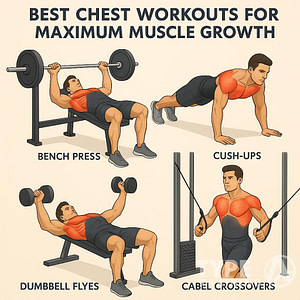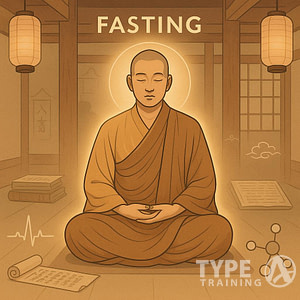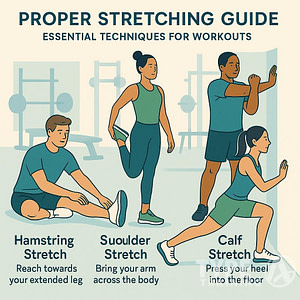Youth sports have become increasingly competitive, and many parents are looking for ways to help their children excel in their chosen athletic endeavors. Hiring a youth sports personal trainer can be a game-changer, offering a range of benefits that can help young athletes reach their full potential.
A qualified youth sports personal trainer not only teaches skills and techniques for a specific sport, but also takes a holistic approach, focusing on the physical, mental, and emotional development of the athlete. This comprehensive approach ensures that young athletes receive the guidance and support they need to succeed both on and off the field.
Key Takeaways
- Youth Sports Personal Trainers provide well-rounded, customized training for young athletes.
- Certification and experience ensure trainers have the proper knowledge to guide young athletes.
- Investing in a personal trainer can offer convenience, flexibility, and motivation for youth athletes.
Understanding Youth Sports Personal Training
Popular posts:
Defining Personal Training
Personal training, in general, is a customized fitness program designed to meet the individual needs and goals of a client. For youth sports, personal training is tailored to help young athletes improve their athletic performance. These programs focus on enhancing their strength, agility, and overall fitness, while also promoting healthy habits that can last a lifetime. A youth sports personal trainer works with athletes to improve various aspects of their performance, such as:
- Strength training: Building muscle and endurance, essential for many sports activities.
- Agility and speed: Enhancing overall coordination, reaction time, and speed.
- Aerobic and anaerobic conditioning: Developing cardiovascular fitness and stamina.
- Flexibility: Improving range of motion, which helps prevent injuries.
Role of a Personal Trainer
A personal trainer’s primary role is to guide and support their clients throughout their fitness journey. Here’s a brief overview of the main responsibilities of a youth sports personal trainer:
- Assessment and Goal-Setting: Initially, a personal trainer will assess a young athlete’s current fitness level, discuss their goals, and create a plan to help them achieve those goals.
- Customized Training Programs: Based on the assessment, the trainer will design a personalized program that targets the specific needs of the athlete, taking into consideration their age, current fitness level, and sport of choice.
- Motivation and Accountability: A significant part of personal training is helping athletes stay committed to their regular workouts, ensuring they consistently put in the effort required to see improvements.
- Technique and Form: Trainers provide guidance on proper technique and form, helping athletes execute exercises correctly, thereby reducing the risk of injury.
- Certification and Experience: It is essential that you, as an athlete or a parent, ensure your personal trainer has proper certification and a background in working with children or teenagers. This is crucial for providing safe and effective training.
It’s important to choose a youth sports personal trainer with the right experience and qualifications. This ensures they provide appropriate and targeted training, offering young athletes a solid foundation upon which to build their athletic success.
Benefits of Hiring a Personal Trainer for Youth Athletes
In today’s world, where obesity and health conditions are prevalent among children, hiring a personal trainer for youth athletes can make a significant difference in their overall well-being. Below are some key benefits to consider when hiring a personal trainer for your young athlete.
Focused Goals Achievement
One of the main advantages of hiring a personal trainer for your child is goal alignment. A professional trainer tailors workouts and training programs to your child’s needs, ensuring a focused approach towards their goals. This individualized plan can cover various aspects, such as:
- Improving athletic performance
- Building strength and endurance
- Promoting weight loss or healthy weight gain
- Managing specific health conditions
In addition, trainers help youth athletes stay accountable, follow a structured plan, and measure their progress more effectively.
Avoiding Injuries
Injury prevention is crucial for young athletes, as it can help them avoid long-term damage and unnecessary setbacks in their fitness journey. A personal trainer is knowledgeable about proper techniques and can guide your child in executing exercises in a safe and efficient manner.
Here are some ways a personal trainer helps prevent injuries:
- Form and technique correction: Ensuring your child maintains proper form and technique while training can significantly reduce the risk of injuries.
- Gradual progression: Personal trainers implement appropriate progressions and modifications, allowing your child to build strength and resistance without overexerting themselves.
- Balance in training: By incorporating a variety of exercises, a personal trainer ensures youth athletes develop various muscle groups evenly, minimizing the likelihood of overuse injuries.
Investing in a personal trainer for your child not only assists in achieving their goals, but also prioritizes their safety and well-being. In the long run, this investment will contribute to the development of lifelong healthy habits and a better quality of life for your child.
Necessity of Certification and Experience
Significance of Certified Professionals
When looking for a youth sports personal trainer, it is crucial to ensure they have the necessary certification. Certified professionals have gone through extensive training and education, which makes them more knowledgeable and competent in their role. For example, a health & fitness certification is important because it confirms that the trainer is qualified to work with young athletes. One such certification is offered by the National Academy of Sports Medicine (NASM).
By choosing a certified personal trainer, you can trust that they are up-to-date with the latest methods and techniques in the industry. They are also more likely to adhere to specific guidelines and good practices, ensuring a safe and efficient training program for your young athlete.
Valuing Experienced Trainers
In addition to certification, it is important to seek trainers who have experience working with youth athletes. This can make a significant difference in the quality and effectiveness of the training program. Experienced trainers possess the skillset to adapt their approach according to each individual’s age, physical abilities and specific health needs, as detailed in Training Young Athletes: What a Fitness Professional Should Know.
Their experience also helps them:
- Create challenging and engaging workouts
- Navigate the balance between training, competing, and preserving the child’s formative years
- Identify signs of potential injuries or obstacles and provide timely interventions
In conclusion, investing in a certified and experienced youth sports personal trainer ensures that your young athlete receives a well-rounded, safe, and effective training program tailored to their needs. This strong foundation in their early years will play a significant role in their long-term success in sports and overall physical development.
Customized Training Approach
Personalized Exercise Program
A youth sports personal trainer creates a personalized exercise program tailored to your child’s specific needs. As a parent, you can be confident that the workout plan is designed with their age, fitness level, and goals in mind. This individualization ensures that your child receives a well-rounded approach to their physical development, encompassing strength, flexibility, and endurance.
For example, a personalized plan might include:
- Warm-up exercises to prepare their body for the workout and reduce injury risk
- Strength training using age-appropriate equipment and techniques
- Cardiovascular activities that are fun and engaging
- Cool-down exercises for recovery and flexibility improvement
The customized nature of the program helps keep your child motivated, as they can see their progress over time and feel confident in their abilities.
Addressing Individual Strengths and Weaknesses
A youth sports personal trainer is knowledgeable in identifying your child’s strengths and weaknesses. By focusing on their individual strengths and weaknesses, the trainer can help your child achieve a well-balanced development. This approach ensures that they improve in areas where they may be struggling while also building upon their existing skills.
For instance, if your child has a natural talent for speed but struggles with endurance, the trainer can incorporate exercises and activities that help them develop their stamina. On the other hand, if your child has excellent coordination but needs to improve their strength, the trainer can create a workout plan that focuses on resistance exercises and functional movements.
Ultimately, a customized training approach with a youth sports personal trainer gives your child the advantage of a personalized exercise program and individualized attention to their strengths and weaknesses. This tailored approach fosters a strong foundation for their athletic development, ensuring they have the tools and confidence to achieve their goals and excel in their chosen sports.
Investment and Cost Considerations
Understanding the Hourly Fee
When considering hiring a youth sports personal trainer, it’s essential to understand the hourly fees involved. Costs can vary significantly based on experience, qualifications, location, and services offered. On average, expect to pay anywhere from $25 to $150 per hour for a certified personal trainer.
Type A Training of NYC specializes in youth sports personal training, offering tailored programs to enhance skills and boost confidence. Remember, higher fees don’t always mean better quality. Focus on the trainer’s experience with children, their success stories, and additional certifications or qualifications they possess.
Example of Personal Trainer Hourly Fees:
| Experience Level | Hourly Fee |
|---|---|
| Beginner | $25 – $50 |
| Intermediate | $50 – $100 |
| Expert | $100 – $150 |
Investing in Health
While hiring a youth sports personal trainer might seem like a significant expense, it’s important to view it as an investment in your child’s long-term health and well-being. A professional sports trainer can help shape and mold your child into a healthy and strong adult, as their bodies undergo significant changes during adolescence3.
Having a personal trainer can ensure that your child receives personalized workouts tailored to their specific needs, as a child’s physical requirements differ from those of adults3. Children can benefit from the trainer’s expertise in proper fitness techniques, reducing the risk of injury and promoting long-term health and fitness habits.
Additionally, investing in a personal trainer can lead to improved performance in their chosen sport, increasing their chances of success and promoting a lifelong passion for physical activity.
To sum it up, understanding the hourly fees and considering the long-term health benefits of hiring a youth sports personal trainer can help you make an informed decision about this investment. Remember that ultimately, the goal is to provide the best possible opportunity for your child to grow and develop into a healthy, active adult.
Convenience and Flexibility of Training
Presenting Virtual Training
In today’s digital age, virtual personal training has become increasingly popular, providing you with the convenience of accessing your training sessions from the comfort of your home. This option allows you to remain flexible in scheduling your sessions and eliminates challenges such as travel time or gym availability. Working with a youth sports personal trainer virtually, your child can access tailored workouts and guidance at any time.
Advantages of virtual training include:
- No need to commute to a gym or training center.
- Flexible scheduling to accommodate your child’s calendar.
- Access to a wider range of trainers and experts.
- Potential cost savings by eliminating gym fees and commuting expenses.
In-Home or Gyms: Weighing Options
When it comes to training locations, you can choose between in-home sessions and conventional gym environments. Both options offer distinct benefits and potential drawbacks, depending on your preferences and needs.
In-Home Training
In-home training provides a private and familiar environment for your child to work with their personal trainer. This can reduce potential distractions and boost motivation.
Pros:
- Personalized, private environment.
- No waiting for equipment.
- No additional gym membership fees.
Cons:
- Limited space, which may restrict certain exercises.
- Potential need to purchase equipment.
- May lack the energy and motivation of a gym setting.
Gym Training
Training at a gym grants access to an extensive range of equipment, trainers, and support staff. Some children may be more motivated in a gym setting with their peers.
Pros:
- Access to a wide range of equipment and professional support.
- Opportunities for group classes and socialization.
- Encourages proper gym etiquette and routine building.
Cons:
- Possible overcrowding and wait times for equipment.
- Additional gym membership fees.
- Need for transportation to and from the gym.
Ultimately, the choice between virtual, in-home, or gym training depends on you and your child’s preferences, goals, and available resources. Consider the pros and cons of each option to determine the best fit and maximize the training experience.
Staying Motivated and Avoiding Plateaus
The Role of Trainers in Motivation
A key factor in maintaining a consistent fitness routine is motivation. Working with a youth sports personal trainer can help keep your child encouraged and enthusiastic about their training. These trainers not only provide expert guidance but also offer ongoing support to ensure your child stays motivated throughout their fitness journey.
Personal trainers recognize individual needs and tailor their approach accordingly. They help set realistic goals, track progress, and celebrate achievements. This customized approach makes the training experience enjoyable, making it more likely that your child will stay committed to their regimen.
Overcoming Training Plateaus
As your child progresses in their sports training, they may encounter plateaus. These are periods of stagnation where it seems like they’re no longer improving, even with consistent training. A personal trainer can help identify the root cause of these plateaus and devise a strategy to overcome them.
Some common causes of plateaus include improper technique, lack of variety in workouts, and inadequate rest. Personal trainers can address these issues by:
- Identifying and correcting any flaws in your child’s technique.
- Introducing new exercises or variations to keep training challenging and engaging.
- Ensuring that your child gets adequate recovery time to prevent overtraining and injury.
By partnering with a personal trainer, your child gains access to a wealth of knowledge and experience that can help them stay motivated and keep progressing in their sport. Plateaus can be frustrating, but overcoming them is an integral part of the growth process. With the right support, your child can stay on track and reach their full potential in their chosen sport.
Transformation through Nutrition and Lifestyle Changes
Significance of Balanced Meals
A key component to the success of a youth sports personal trainer is incorporating nutrition education into their training programs. Balanced meals are crucial for promoting proper growth, development, and overall health of young athletes. A well-planned diet helps in fueling their bodies for optimum athletic performance.
To create a balanced meal, ensure it contains:
- Carbohydrates – the main source of energy
- Proteins – essential for growth and repair of body tissues
- Fats – for absorption of fat-soluble vitamins and long-lasting energy
- Vitamins and Minerals – needed for various bodily functions
Here’s an example of a simple, balanced meal plan:
| Breakfast | Lunch | Dinner | Snacks |
|---|---|---|---|
| Whole-grain toast with avocado and scrambled egg | Grilled chicken salad with mixed veggies | Brown rice with grilled fish and steamed broccoli | Greek yogurt with berries and chia seeds |
By incorporating these food groups into their daily meals, young athletes can ensure they are receiving the necessary nutrients to support their growth and performance.
Cultivating Healthy Habits
Adopting a healthy lifestyle goes beyond just the food on the plate. Personal trainers play a key role in instilling healthy habits in their young clients, impacting both their athletic endeavors and everyday lives. Some of the habits that can be encouraged include:
- Staying hydrated: Drinking water throughout the day helps replenish fluids lost during exercise, maintain peak performance, and improve overall health.
- Getting enough sleep: Prioritizing sleep is essential for athletes’ recovery, mental well-being, and overall performance.
- Proper time management: Balancing school, sports, and personal life is vital for young athletes. Encouraging them to plan their days helps reduce stress and maintain focus.
By emphasizing the importance of balanced meals and healthy habits, a youth sports personal trainer contributes to a long-lasting transformation in both the athletic abilities and overall well-being of your young athlete.
Frequently Asked Questions
What benefits do youth athletes gain from personal training?
Personal training offers numerous benefits for youth athletes. It provides individualized attention, allowing trainers to design customized exercise programs tailored to each athlete’s needs and goals. This personalized approach helps young athletes develop their skills more effectively and efficiently than group training sessions.
How do youth sports trainers improve skill development?
Youth sports trainers are knowledgeable about the specific requirements of various sports and can focus on the most relevant skills for each athlete. They assess the athlete’s current level and create reasonable plans that challenge them to improve. Moreover, they offer valuable feedback on technique, form, and performance, enabling athletes to fine-tune their abilities and excel in their chosen sport.
What role does a personal trainer play in injury prevention for young athletes?
Injury prevention is an essential aspect of personal training for youth athletes. Trainers ensure that proper form and technique are utilized during all exercises to minimize the risk of injury. They also educate athletes on the importance of stretching, warming up, and cooling down, which helps to keep their muscles and joints safe during training and competitions.
How does a personal trainer foster long-term sports commitment in youths?
A personal trainer can play a crucial role in nurturing a long-term commitment to sports in youths. By helping young athletes set realistic goals, monitoring their progress, and celebrating their accomplishments, trainers provide the necessary motivation and support. Additionally, they can make the training sessions fun and engaging, which encourages athletes to continue participating in sports activities for the long haul.
Can personal training improve the overall well-being of youth athletes?
Yes, personal training can have a significant impact on the overall well-being of youth athletes. Apart from enhancing physical fitness and sports performance, personal training helps develop discipline, self-esteem, and time management skills. It also promotes healthy habits that can benefit athletes throughout their lives, such as proper nutrition and regular exercise.
How does hiring a personal trainer for kids help in building a solid athletic foundation?
Hiring a personal trainer for kids provides them with the necessary guidance and support to develop a strong athletic foundation. The trainer’s expertise in areas like strength training, agility, and endurance ensures that kids learn the fundamentals of their sport correctly. Additionally, personal trainers can identify and correct any weaknesses in the athlete’s performance, allowing them to build a solid foundation that can be built upon as they grow and advance in their sport.















